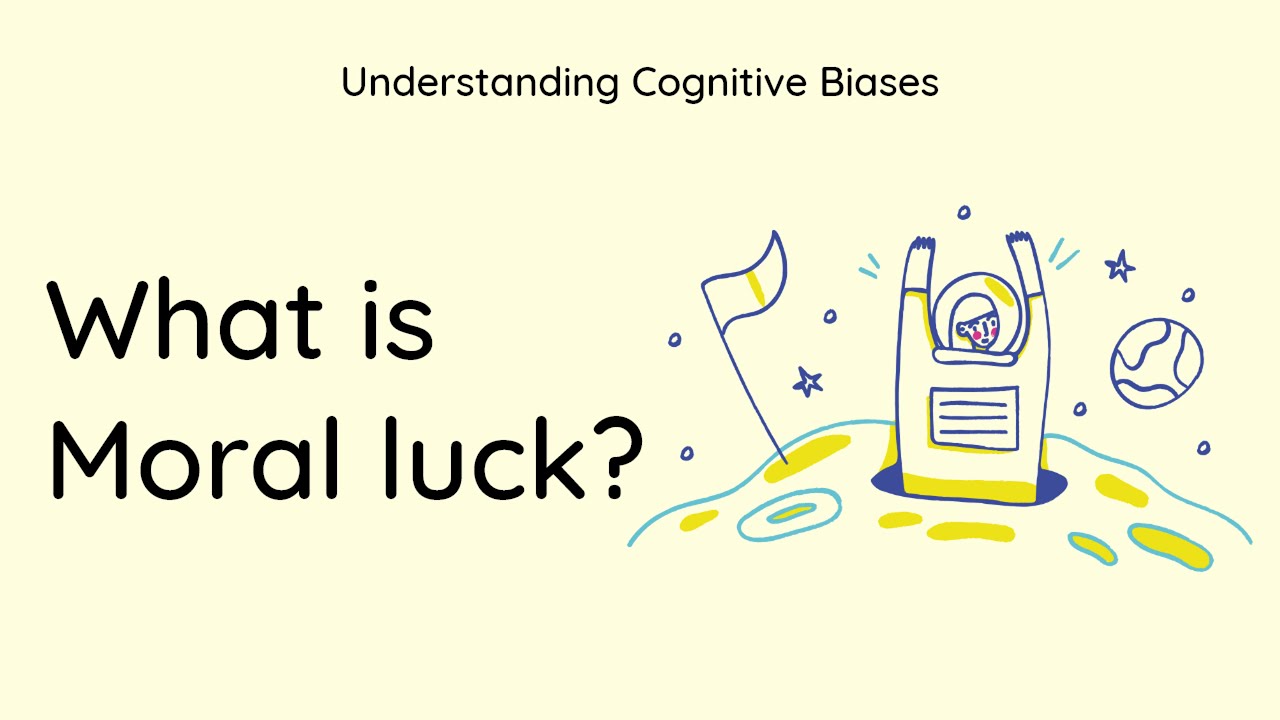Moral Luck: When Luck Affects Moral Judgment
Moral Luck is a cognitive bias that reveals the impact of luck or chance on our moral evaluations of individuals’ actions and outcomes. This bias questions whether individuals are held morally responsible for factors outside their control.
Examples of Moral Luck:
Safe Driving: Consider two drivers who both run a red light. One driver narrowly avoids a collision by pure luck, while the other causes a severe accident. People may judge the first driver less harshly, despite both committing the same traffic violation.
Medical Outcomes: A doctor may make a decision that results in a patient’s full recovery due to unexpected luck. The doctor is perceived as more competent than another doctor who makes the same decision, but the patient’s condition deteriorates.
Investment Success: An investor puts their money into a high-risk venture that ultimately succeeds due to unexpected market fluctuations. They are praised for their decision, while another investor who makes a similar choice in a different market context is criticized for their recklessness.
Moral Luck in Action:
Consider a scenario in which two friends, Alex and Morgan, are discussing a recent news story. The story involves a parent who left their child unattended for a brief moment in a busy public place, and the child was unharmed. Alex argues that the parent was irresponsible, while Morgan contends that the parent was merely lucky that nothing went wrong. Their differing judgments highlight the role of moral luck in shaping their perspectives.
Solutions to Address Moral Luck:
Reflect on the Role of Luck: Encourage individuals to reflect on the role of luck or chance in outcomes and to consider how it influences their moral judgments.
Separate Responsibility and Outcome: Teach individuals to separate responsibility for one’s actions from the outcome. An action’s moral value should be assessed based on intention and choice, rather than contingent outcomes.
Foster Empathy: Promote empathy and understanding when evaluating individuals’ moral decisions. Acknowledge that circumstances and luck can influence the outcomes of actions.
Consider Alternative Perspectives: Encourage individuals to consider different viewpoints and the possibility of moral luck in complex moral situations.
In conclusion, Moral Luck is a cognitive bias that underscores the influence of luck on moral evaluations of actions and outcomes. To address this bias, it is essential to reflect on the role of luck, separate responsibility from outcomes, foster empathy, and consider alternative perspectives. By doing so, individuals can make more nuanced and empathetic moral judgments.
